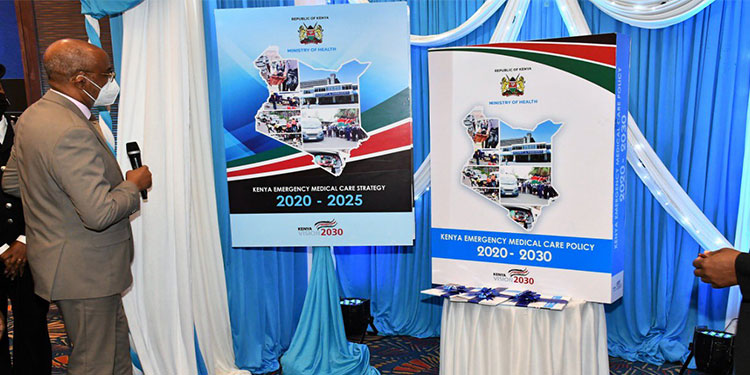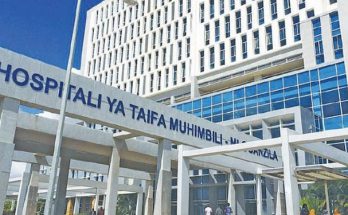 The Kenya Emergency Medical Care (EMC) Policy 2020-2030 was launched by the Ministry of Health to improve healthcare among residents in need of emergency treatment.
The Kenya Emergency Medical Care (EMC) Policy 2020-2030 was launched by the Ministry of Health to improve healthcare among residents in need of emergency treatment.
Dr. Rashid Aman, the Ministry of Health’s Chief Administrative Secretary (CAS), said the EMC Policy is a precursor to the creation of an Emergency Medical Fund in accordance with a National Assembly resolution that the Ministry of Health establish an EMC Fund to assist those in need of emergency treatment.
“This Policy is in line with the provision of the Kenyan Constitution of 2010 that no one shall be denied emergency medical treatment,” Aman said, adding that the components of emergency medical care are defined as pre-hospital care in the Health Act 2017.
Investment in EMC infrastructure, Emergency Command and Control Centers, Ambulance Coordination System and dispatch centres, Information and Communication Technology, and strengthening leadership and governance at all levels are all priorities in the Policy’s implementation.
The Policy, according to the Ministry of Health, is a significant step forward in the health sector in terms of strengthening structures to fulfil the many demands for effective emergency and disaster preparedness, mitigation, response, and developing resilience in the health care system.
During the ceremony, the Ministry of Health established a three-year National Emergency Medical Care Steering Committe.
The Committee will be responsible for operationalizing and providing oversight, establishing legislation, standards, and regulations, developing a framework for the use of the Emergency Medical Treatment Fund, and advising the Ministry on emergency medical care service provision and strategies, among other things.
Through the NHIF framework and Universal Health Coverage, government ministries and partners support access to emergency medical treatment.



